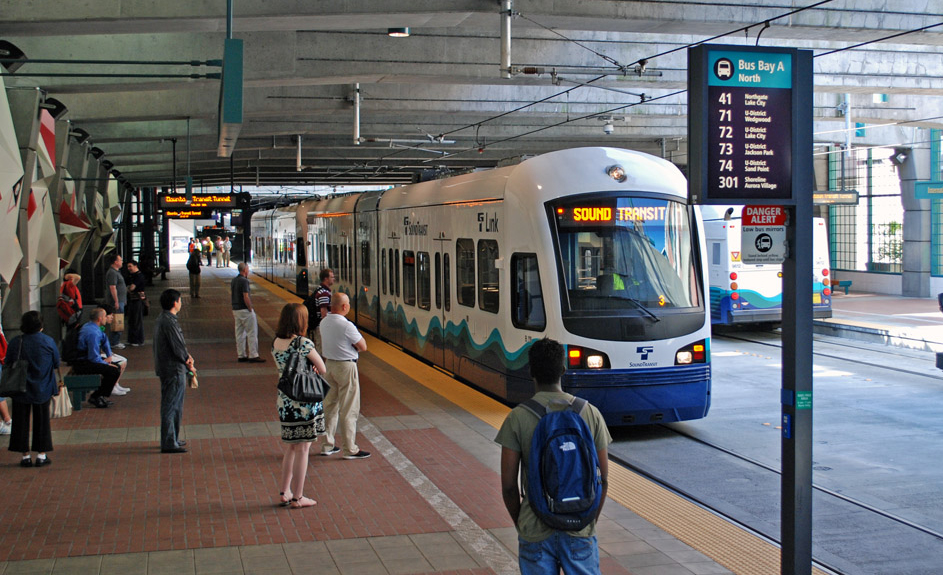Sound Transit projected fares fall by $2B due to free rider problem

Sound Transit’s new policy for fare enforcement on their passengers isn’t satisfying many Washington state residents, including a number of the agency’s board members.
Sound Transit’s board of directors debated on the best way to hold passengers accountable while not burdening disadvantaged riders at a recent meeting.
Russell Arnold from Sound Transit presented statistics on the April 28 gathering relating to the agency’s fare compliance policy. These numbers showed found that the increase in riders evading payment is causing a decrease in revenue.
The change in fare revenue projections in the Sound Transit’s finance plan that spans from 2017-2046 has gone from a projected $9.5 billion in revenue in 2019 to this year’s projected range of $6.1 to $7.5 billion.
Arnold said this is “due to the reduction in ridership and a decrease in fare payment compliance.”
The new policy gives offenders two warnings instead of one over a 12-month period. A third offense would result in a $50 fine and a fourth offense results in a $70 fine. Riders can also choose to attend a Sound Transit focus group or education program instead of receiving a fine. If a passenger manages to commit the offense a fifth time in 12 months, they would receive a civil penalty of $124.
Sound Transit previously called King County sheriffs to assist with riders who don’t pay for their ticket, but has since moved to Sound Transit fare ambassadors to check passengers’ tickets.
But the ambassadors are hamstrung as well. There are currently no solutions in place for when riders refuse to provide identification. According to Arnold, 76% of passengers without proof of payment are not providing full identification to fare ambassadors and 40% of those riders refuse to provide any identification at all. Pierce County Executive Bruce Dammeier is critical of how passengers are getting away with not paying.
“If people are refusing to show identification and there’s no accountability to it . . . they can avoid the whole thing if they don’t show their I-D, just refuse to interact with the fare ambassadors,” Executive Dammeier said.
Arnold acknowledged that Sound Transit is aware of the deficiency and hoping to solve it in the future. Arnold also mentioned concerns stemming from the fare ambassador program including reduced staffing levels currently only able to check approximately 1-3% of ridership.
Everett Mayor Cassie Franklin said the issue is not with paying the fare, but ensuring the system is not being exploited.
“It’s not about the individual rider fee, it’s about the entire system that all the passengers riding know that if they don’t pay, there’s a consequence at the end of the day,” Mayor Franklin said.
Kent Keel, Sound Transit’s board chair, believes that the new policy that gives offenders multiple warnings effects taxpayers.
“If, by the math, [offenders] will never get to the court system, why don’t we just leave the court system in place?” Keel asked. “They’re never going to get there anyway, but what that does is it speaks to the people that are paying, the people that never ride our system at all…those people are still paying taxes into what we’re doing.”
Some present at the board meeting spoke in favor of the new policy. King County Executive Dow Constantine said he understands the frustrations but said he thinks the most effective way to deal with the issue is continuing emphasis on fare ambassadors.
Ed Prince from Renton City Council believes it’s problematic for someone to go to court over a fare.
“I think if you’re not able to pay a $3.50 fare, there is something deeper going on, something deeper that will only be exacerbated by being put in the court system,” Prince said.
This article was originally posted on Sound Transit projected fares fall by $2B due to free rider problem



